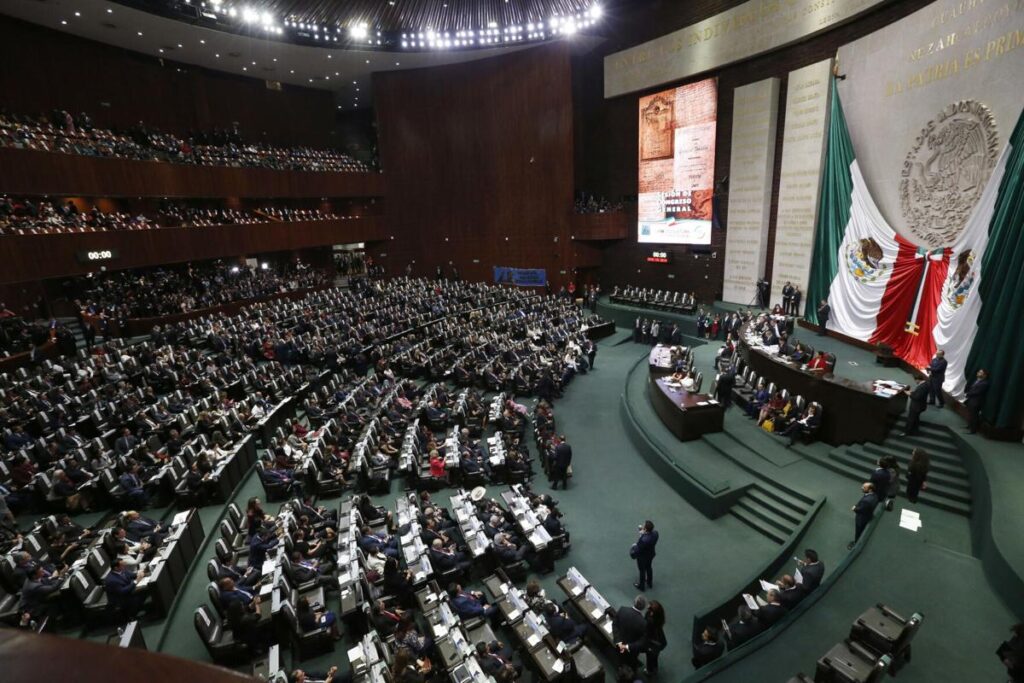Mexico’s ruling Morena party has moved closer to achieving a powerful two-thirds majority in both houses of Congress following the defection of two opposition senators, a development that could pave the way for sweeping constitutional changes proposed by President Andrés Manuel López Obrador’s administration.

The Morena party announced on Wednesday that it had successfully won over two senators from the now-defunct Democratic Revolution Party (PRD), which lost its national party status after failing to secure 3% of the vote in the June 2 elections.
This strategic gain leaves the ruling party just one vote shy of the crucial two-thirds majority in the Senate, matching the supermajority it already holds in the lower house.
President-elect Claudia Sheinbaum, a member of López Obrador’s Morena party, confirmed that senators Araceli Saucedo and José Sabino had decided to join the ruling party bloc.
The defections have sparked immediate backlash from opposition figures, with former presidential candidate Xóchitl Gálvez labeling the senators as “traitors who took part in the attack on democracy.”

The potential supermajority in both chambers would enable Morena to push through significant constitutional amendments without needing opposition support. Among the proposed changes is a controversial plan to make all judges stand for election, a move critics argue would concentrate power in the presidency, compromise judicial independence, and open the courts to influence from campaign donors.
U.S. Ambassador Ken Salazar publicly voiced concerns last week about the proposed judicial reforms, stating they pose a “risk” to Mexico’s democracy and could “threaten the historic commercial relationship” between Mexico and the United States.
Salazar warned that the changes might “help cartels and other bad actors take advantage of inexperienced judges with political motivations” and “create turbulence” both economically and politically for years to come.
The ambassador’s remarks drew sharp criticism from outgoing President López Obrador, who announced he had put relations with the U.S. Embassy “on pause” in response.
As Morena solidifies its grip on Congress, there are signs that President-elect Sheinbaum may continue her predecessor’s confrontational style rather than pursuing a more consensus-based approach.

The party has named Senator Gerardo Fernández Noroña, known for his provocative speeches and defiance of COVID-19 mask mandates, as the leader of the Senate. In the lower house, Representative Adán Augusto López, described as an old-style political enforcer, will take the helm.
With electoral court judges having approved Morena’s two-thirds majority in the lower house, the party is poised to push forward with approximately 20 constitutional changes.
The reforms would also require approval from two-thirds of state legislatures, a threshold that seems attainable given Morena and its allies control about two dozen of Mexico’s 32 states.
As Mexico stands on the brink of potentially transformative constitutional changes, concerns are mounting about the long-term implications for the country’s democratic institutions, judicial independence, and international relations. The coming months are likely to see intense political maneuvering and debate as Morena seeks to consolidate its power and implement its ambitious agenda.



